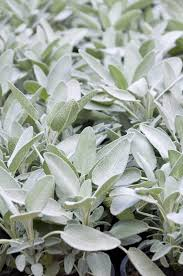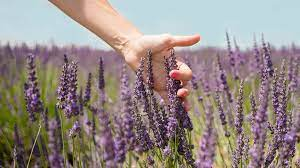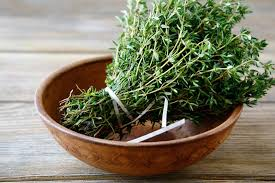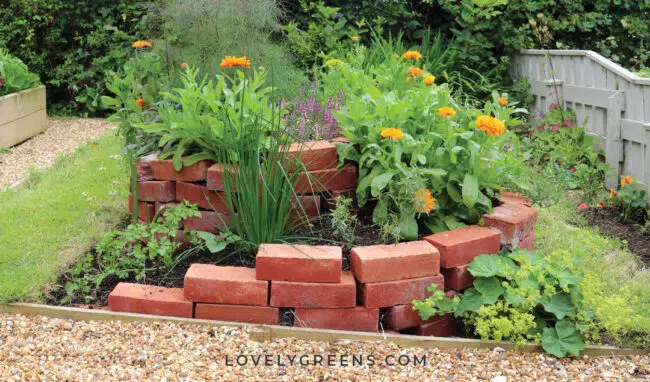Back to Basics: Grab all the limelight from your own backyard
- Morag Steyn

- Jul 6, 2022
- 6 min read
How we can grow a skincare garden right in our backyard or window herb garden.

Some important questions before we start.....
Do want to look good or grab all the limelight with a glowing skin?
Do you love high-quality skin-care products, but hate the expensive price tag?
Do you favour natural remedies over chemical solutions?
Perhaps you just want to be more in control of what you put in and on your body?

Plant Intelligence
The behaviour of plants is so subtle that most people fail to notice it. Plants have intelligence and consciousness. We think a brain,or at least a nervous system, is necessary to be intelligent. Plants have a long view as they have been around 400 to 450 million years and, in fact multiple scientific studies have proven plants have ability for memory.
Let me remind you the modern form of humans only evolved about 200,000 years ago, so if plants have intelligence and memory they will hold a lot of knowledge for us.
We have co-evolved and live interrelated with the plant world and, plants have a direct influence on our moods and behaviours through our diets.
Many top beauty brands boast botanical and plant-based extracts as the principal ingredients in their high-priced products. There’s no secret in the fact that plants contain many elements that support healthy skin, but the big secret is that many of the plants the big brands use are easy to grow at home.
Some of the most effective ingredients in your favourite bottles of natural skin care products started in the dirt. So why not try growing your own natural beauty ingredients for a change? Here are some of my favourite plants that are great for your skin and are easily grown in your own backyard or window herb garden. And you don’t need electricity to grow them. (Great for South Africa, with all the loadshedding)
There are scores of plants you can use to form your handmade beauty arsenal. Some are great at soothing irritated skin, others moisturize, and yet others treat acne. Many plants have multiple skincare properties and can be used for a range of skin conditions, these are some of my favs.

1. Camomile
What it does: High in the compound alpha-bisabolol, chamomile helps reduce inflammation which soothes acne, rashes and eczema. The compound has also been known to ease discoloration caused by sunburn or acne due to its lightening properties.
How to use it: Brew some chamomile tea. Let it cool. Wash your entire body with it. Seriously, though, a DIY facial treatment can fight fine lines and wrinkles and using chamomile as a rinse can help protect colour-treated hair while also conditioning your strands; and use tea bags on your eyes to fight puffiness and dark circles.
Growing tips: As light-loving plant this baby needs a lot of sun and occasional watering. Once its grown then harvest the flowers to use in your beauty routine.

2. Sage
An antioxidant powerhouse, which means it's a rock star when it comes to anti-aging, fighting free radicals and acting as a natural astringent for oily, acne-prone skin. It's also rich in vitamin A and calcium, both of which play a major role in cell regeneration.
How to use it: Turn it into a delicious-smelling toner to help regulate sebum production. For your hair, boil the leaves and use as a rinse once cool.
Growing tips: The best way to grow sage is from the cuttings of an established plant, so keep that in mind before running out to buy seeds. It's also very susceptible to mildew, so be wary of humidity and overcrowding in the planter.

3. Mint
A great natural cure for acne, mint is a pimple-fighter thanks to its salicylic acid (which also helps with excessive oil). It's also anti-pruritic, meaning mint juice can soothe and calm itchy, infected skin.
How to use it: To combat stinky and dry cracked feet, boil mint leaves and let your feet soak. You can also mash a few leaves into a paste to spot-treat pimples, or mix with oatmeal and honey for a DIY mask. You can also turn your mint into a cooling soothing astringent.
Growing tips: Mint thrives best when left alone, so just make sure to keep it regularly watered so the soil is moist.

4. Aloe Vera
Packed with vitamins, minerals and countless other good-for-your-skin stuff. It's uber-hydrating, moisturizing, anti-inflammatory and, can help with skin cell turnover.
How to use it: No DIY necessary here. Just carefully cut open the leaves, scoop out the gel and apply it directly as a moisturizer, skin-soother, scalp mask, leave-in conditioner or aftershave treatment. If you want to get creative, throw it in a skin-quenching smoothie for inside-out benefits.
Growing tips: Aloe vera loves the sun, so make sure your plant is getting plenty of light. Other than that, this is a pretty low-maintenance plant, just make sure to water deeply but sparingly (weekly or bi-monthly, but with enough water that some starts to run out the drainage holes of the planter).

5. Lavender
As relaxing for your skin as it is your mind. Lavender is an antiseptic, anti-inflammatory powerhouse that will soothe irritated, inflamed skin (think dermatitis, dryness, etc.)
How to use it: Use the flowers (dried or fresh) to infuse creams, toners and facial steams. Not only will your concoction smell lovely but it'll help improve circulation and calm your skin.
Growing tips: Lavender is sensitive to excessive moisture and humidity, so make sure to provide excellent drainage and air circulation for your plant. Pruning the leaves will also promote further growth, just don't get too scissor happy.
DO NOT EAT LAVENDER

6. Calendula
With crazy-high levels of carotenoids and flavonoids (powerful antioxidants), so it's no surprise this bright flower can help with everything from chapped lips to fighting fine lines. It's been shown to help wounds heal faster, plump skin through hydration and circulation, and, prevent inflammation.
How to use it: One of the prettiest ways to use calendula is to simply add the flower heads to a bath and let your skin soak up all the benefits.
Growing tips: Don't fuss with this plant — it's fairly self-sustaining. Just make sure to keep it in a shady spot as it prefers cool temperatures.

7. Thyme
According to science, thyme is more effective at clearing acne than conventional remedies — it's mother nature's anti-bacterial defense against annoying blemishes.
How to use it:
For a not-so-drying option, infuse witch hazel or brewed green tea with thyme for a potent acne fighting toner. You can also add this mixture to cosmetic clay (like bentonite) for a powerful mask.
Growing tips: Another herb that grows best from an established plant. Water normally and remember to trim.

8. Rosemary
Rosemary does pretty much anything from moisturizing skin to collagen development to free-radical fighting can be found in the powerful little leaves of the rosemary plant. It's also rich in minerals that protect skin from external damage, like sun exposure. Oh, and it also helps with skin elasticity as you age.
How to use it: Dilute rosemary oil with water and use it as a natural astringent to help fight acne. Massaging the oil into your scalp can promote faster hair growth and treat dandruff. You can also add rosemary oil to a cleanser to boost circulation and rejuvenate skin.
Growing tips: Bright light and cool temperatures are key to this otherwise robust herb.

9. Cilantro or Coriander
We all know to be a part of garnishing food. The rich aroma of this leaf adds a lovely taste to any food. It also carries antiseptic and antifungal properties.
Usage: To make a paste, you need an equal amount of fresh cilantro leaves and lemon juice to be blended smoothly. Apply this paste on those areas that have marks, white or blackheads and leave for 5 minutes. Then rinse it off for a glowing skin.

10. Echinacea
Echinacea extract can help speed up skin regeneration, reduce inflammation and, treat acne. It’s also a gorgeous flower that would look beautiful in any garden. Use a decoction of the roots or water infusion of the flowers as a toner or to drink.
11. Roses
Rosewater is a mild astringent and great as a toner for all skin types. It’s especially great for mature skin since it’s both gentle and hydrating. It also smells incredible. True rose water is a by-product of the distillation of rose petals to make an essential oil.
12. Cucumber
A common garden vegetable, the moist flesh of cucumbers reduces puffiness, soothes irritation and tightens the skin. Commonly used as water infusion, cucumber as a puree a makes a great facial mask, or use the well-known treatment of slices of cucumber over the eyes to soothe, tighten, and brighten dark circles.














Comments